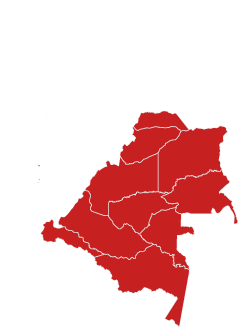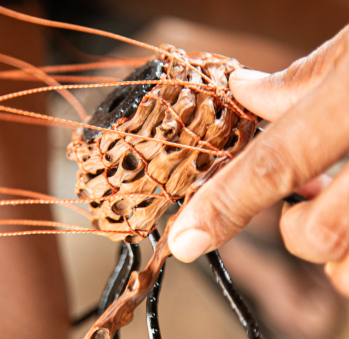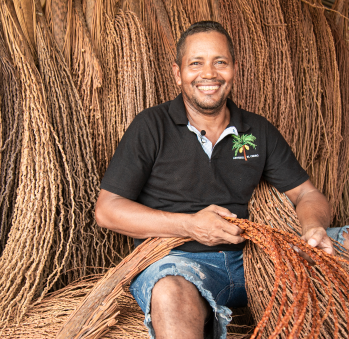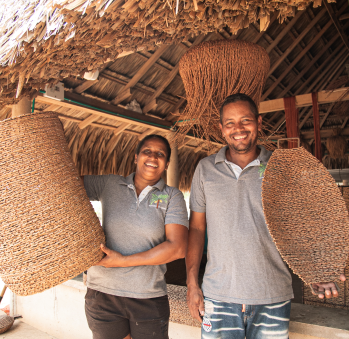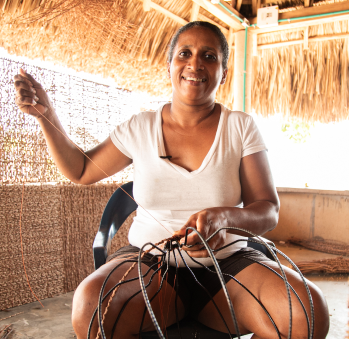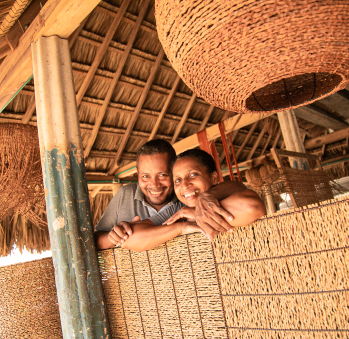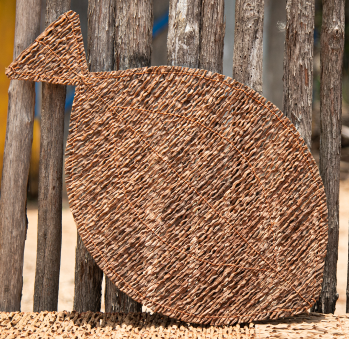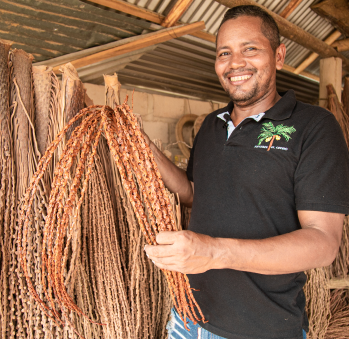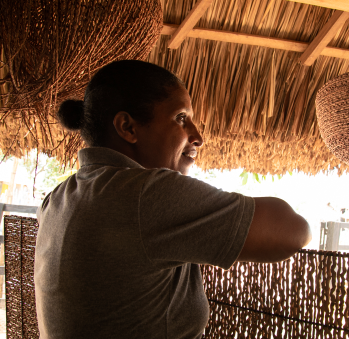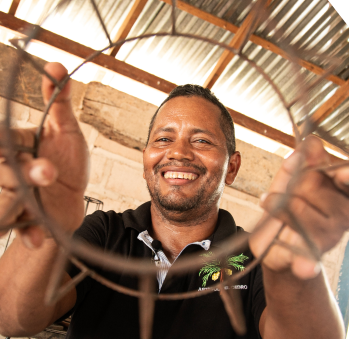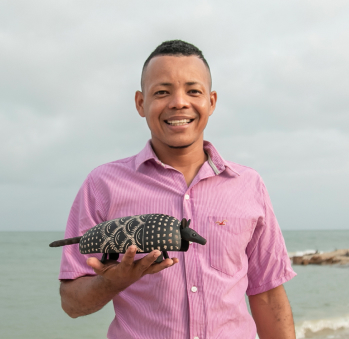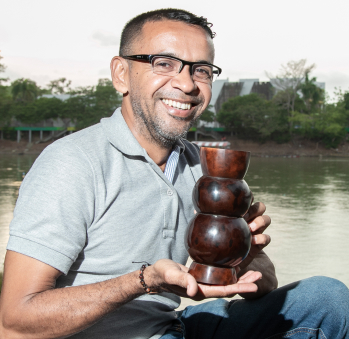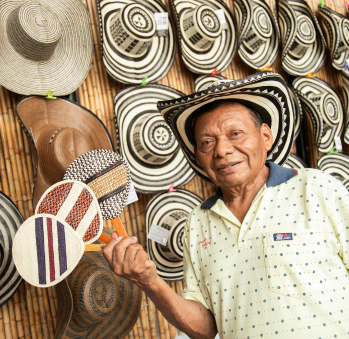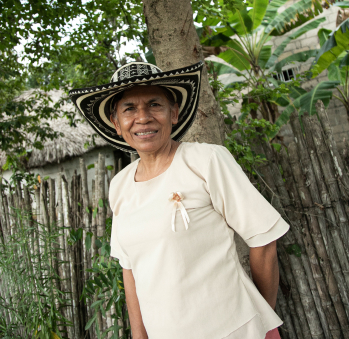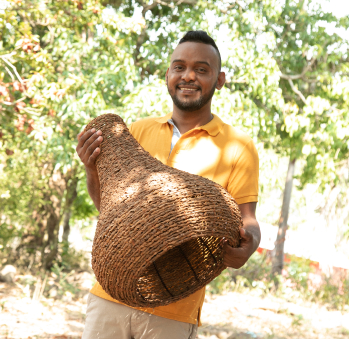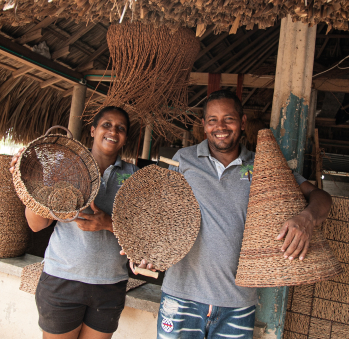Alcides Vides y Adriana Martínez
Workshop: Artesol El Cedro
Craft: Cestería
Trail: Cordoba Route
Location: Ayapel, Córdoba
Modesty, above everything else, is what propels you forward,”” Alcides asserts, expressing gratitude for the opportunity to share his story beneath the dignified roof of his home. He is joined by his wife, Adriana Martínez, whom he describes as a spirited woman—a woman who has persevered through poverty and hunger, raising their family of six alongside him. She has been his partner in the unrelenting pursuit of a better future, driven by their discipline and the artisanal calling they never knew they had. In Alcides’ words, Adriana is a constant presence, and the same happens when she speaks. They are inextricably and affectionately devoted to each other, and they celebrate calling themselves craftspeople.
Their voices tremble with emotion as they portray how just a few years ago, they regained control over their lives. The year 2015 is etched into their memories because it marked the beginning of their journey when, facing limited opportunities, they began crafting small ornaments from snack packaging, selling them at any price. Prior to this, they slept on mats on a dirt floor, and struggled to provide meals for their children. They are humbled by the hardships they endured. Nonetheless, they never over-claimed; instead, they devoted themselves to finding works that helped them come through.
With nothing to lose, they enrolled in craft training courses and discovered their innate skill. Adriana diligently attended classes, meticulously sketching notes, paying close attention, with open eyes and ears, and began to internalize this new world. Back home, she shared her learnings with Alcides, who is an adept reader and narrator. He skillfully translated her lessons into weavings that she presented in class the following day, which made her stand out due to their quality and finishings. Adriana’s popularity grew, and her classmates even began asking her to complete their assignments. This was the start of securing dinner for their family. Nevertheless, their circumstances remained challenging, and their income insufficient to support their household.
She vividly recalls the first time she stepped into a factory to sell her woven bracelets. Fortune favored her, as the owner admired her work and placed an order for more bracelets and belts. She remembers it was a Thursday, and the deadline was set for Saturday. She said yes, of course. When the woman handed her $200,000 pesos to cover material costs, she felt her throat tightening with the weight of emotion. She had never held such a sum of money before. Riding her bike as swiftly as possible, she rushed to share the news with Alcides, finally having secured employment. They stayed up late completing the work, smiling, joyous.
Their talent was undeniable. They stood out in workshops held by Corpoayapel, an organization from Medellin that had come to their town. The designer, Margarita Murillo, took notice of their work and subtly expressed her admiration for their delicate handling of materials. It was certainly a challenge to be there, attending class, instead of hustling the daily income, and Alcides resigned, once again, for working as a day laborer in the mine. During two years he didn’t hone the necessary skills for weaving with calceta de plátano and palma de seje, for making vessels, mats and baskets. It was a period of both beauty and hardship. Eventually, they had to confess to their teacher, Margarita, that they owned only one set of clothes, worn daily. Margarita, who loved and believed in them, provided them with money to buy additional clothing, so they could wear them in turns. Despite the obstacles, their joy was their guidance: facing adversity with a smile. Their experiences are numerous, including a time when a designer who arrived in their town mentioned she had been searching for them after seeing their plantain fiber V-shaped fruit bowl and table mats woven with ox-eye beans.
These two artisans and their family, who followed in their footsteps, are renowned for their mastery of seje palm weaving. When designers introduced the unfamiliar raw material, resembling a vine, and challenged them to work with it, their work excelled. Alcides remembered his brother had something similar to this material, and they ventured into the scrubland to find it. Adriana hopped on his bike, and together they embarked on the search for the plant. They discovered it, a beautiful tall plant with fruits adorned with dotted strands—this was the seje palm. Adriana climbed the palm like an agile monkey; in hindsight, she realizes she never let fear hold her back. Rising at 3 am to bend metal rods and preparing everything for Alcides, who would weld the structures and weave the soaked, pliable material, they created impressive baskets, lamps, and vessels that resembled festive attire. They smile, proud of what they have accomplished, while teaching their children the value of work.
The beauty of their story lies in its fresh beginning. This couple’s journey is far from over; we will have the pleasure of their company for a long time to come.
Craft
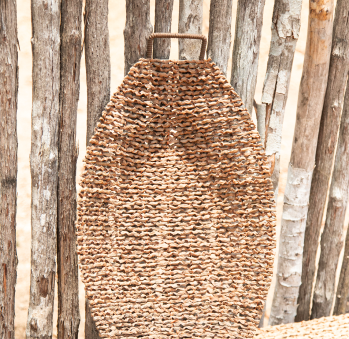

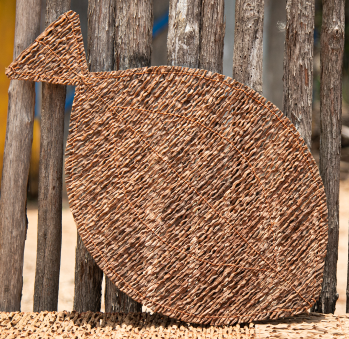
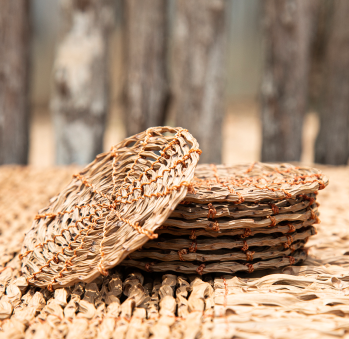






Artisans along the way
Artisans along the way
No puede copiar contenido de esta página

